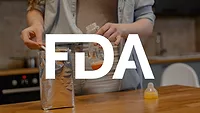FDA Provides Update on Food Safety Concerns Related to Fukushima Nuclear Plant Incident
This week, the U.S. Food and Drug Administration (FDA) posted an update on its website stating, "To date, no evidence that radionuclides from the Fukushima incident are present in the U.S. food supply at levels that would pose a public health concern. This is true for both FDA-regulated food products imported from Japan and U.S. domestic food products, including seafood caught off the coast of the United States.
"Consequently, FDA is not advising consumers to alter their consumption of specific foods imported from Japan or domestically produced foods, including seafood," the update continued. "FDA continues to closely monitor the situation at and around the Fukushima Dai-ichi facility, as it has since the start of the incident and will coordinate with other Federal and state agencies as necessary, standing ready to take action if needed, to ensure the safety of food in the U.S. marketplace."
The agency noted that Import Alert #99-33, which instructs FDA field personnel to detain foods shipments from Japan if the food is likely to contain radionuclide contamination, remains active. In addition, FDA tests for radionuclides as part of its routine surveillance, through the toxic elements in food and foodware monitoring program and through its Total Diet Study.
In addition to the information obtained from its testing of imported and domestic foods, FDA stays current on radiation monitoring efforts by other U.S. Government agencies, including the environmental radiation monitoring program (RadNet) conducted by the Environmental Protection Agency (EPA), FDA officials said. Additionally, the Agency consults on a formal and informal basis with experts from government, academia and the private sector on radiation safety issues.
FDA scientists also keep abreast of scientific publications and reports from both private and public scientific institutions, including oceanographic research institutions. For example, a study published in 2012 in the Proceedings of the National Academy of Sciences (PNAS) reported finding very low levels of cesium in Pacific bluefin tuna caught by recreational fisherman off the coast of California in August 2011. FDA reviewed this study and determined that the levels of cesium were roughly 300 times lower than levels that would prompt FDA to investigate further to determine if there were a health concern.
FDA also closely monitors information and data from a number of foreign governments and international organizations. This includes monitoring:
- the Japanese government’s food sample testing program
- the import sample testing programs of nations geographically close to Japan that import significant amounts of food from Japan
- Fukushima Dai-ichi incident related activities of international organizations such as the International Atomic Energy Agency (IAEA).
FDA officials said the agency "continues to pay close attention to the situation at the Fukushima Dai-ichi facility and to use data, and information from the variety of sources described above, including the results of its own testing and surveillance efforts, to ensure that any FDA-regulated food with harmful levels of radiation as a result of the Fukushima incident is kept out of the U.S. market.
Looking for quick answers on food safety topics?
Try Ask FSM, our new smart AI search tool.
Ask FSM →







